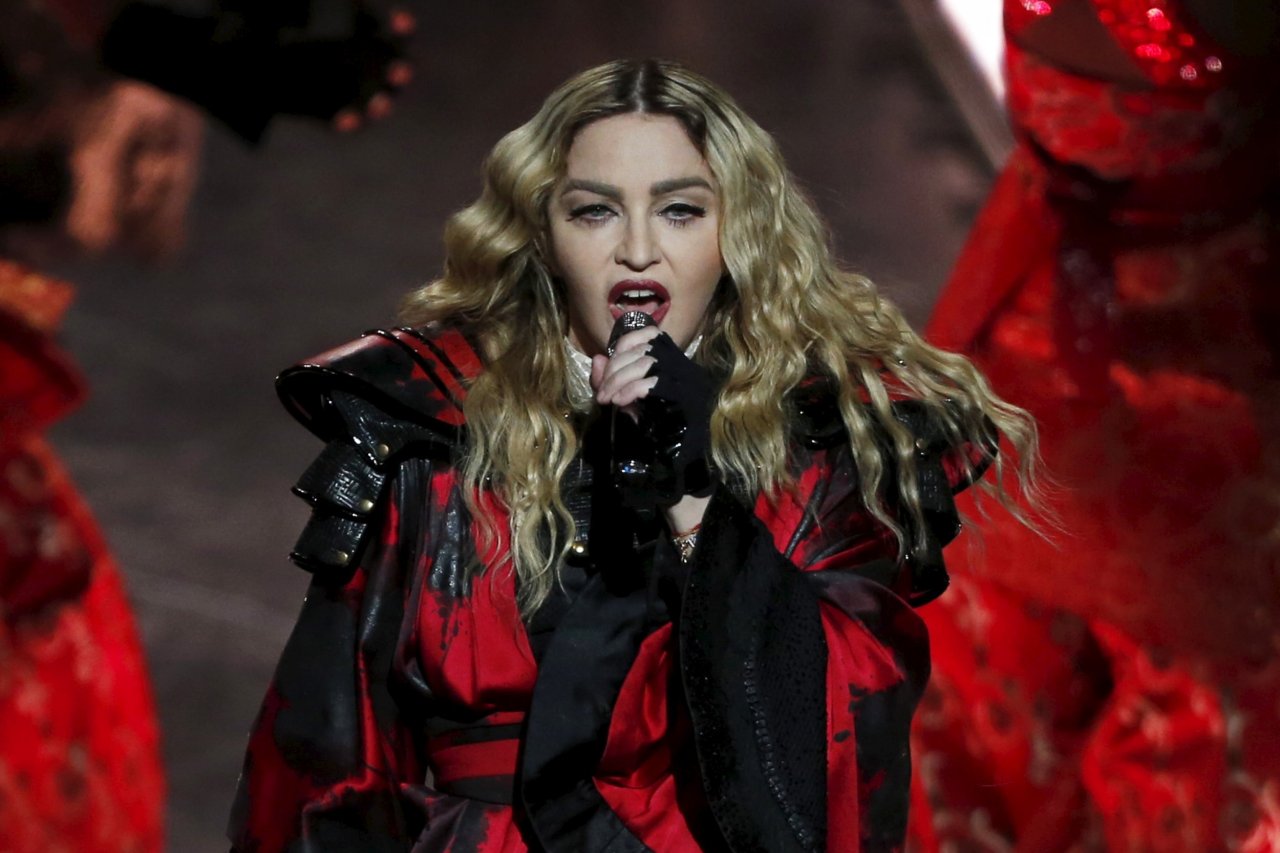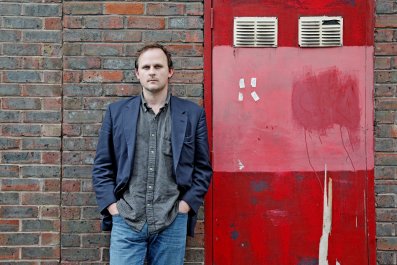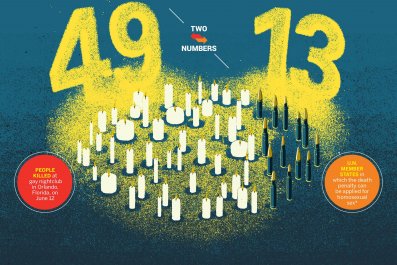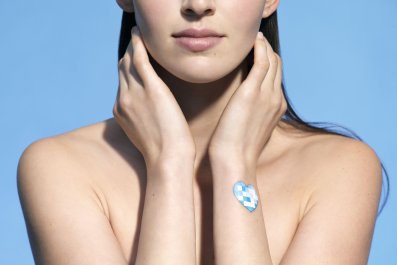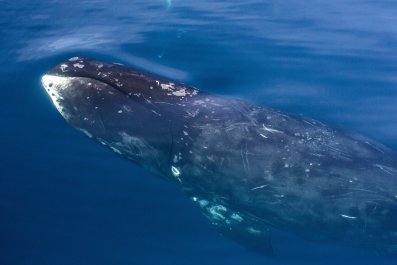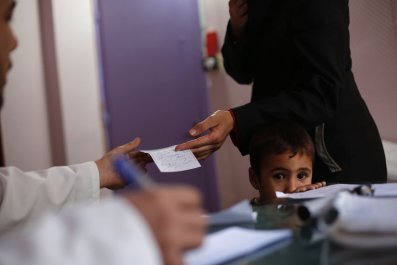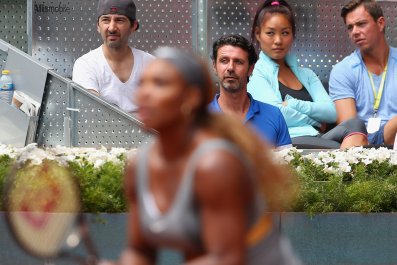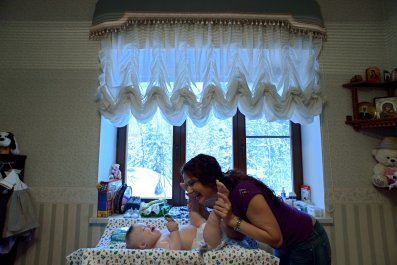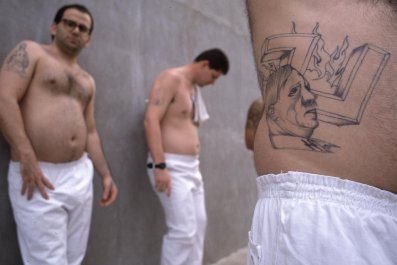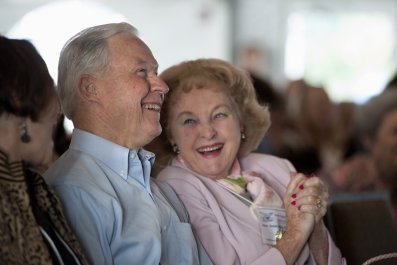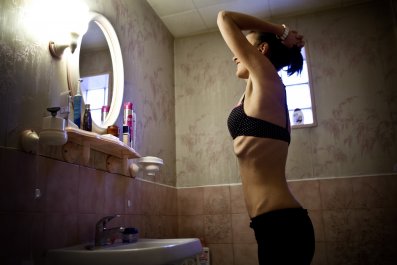The video for Madonna's "Papa Don't Preach," the 1986 song that turns 30 today, opens with a shot of Manhattan receding, haze wafting over the Twin Towers. The point of view is of a passenger on the Staten Island Ferry: the Statue of Liberty, and the way it seems very small until suddenly it seems very big, and gulls inspecting the waters of New York Bay for garbage, which to them is treasure, and the indistinct hills of Staten Island, and the maw of the ferry terminal, ready to receive the homebound.
The view of New York Bay in its glimmering entirety is one of the great pleasures of the city. The water looks one way from Manhattan, another way from Staten Island. Even with New Jersey looming in the background, it retains its beauty. The view of the bay I most treasure is from the Brooklyn waterfront, a third or fourth floor room at Long Island College Hospital, in which my daughter was born four years ago. It was the end of June, most everyone who could having already fled for the Independence Day weekend. The heat was like an anvil pushing down on the city, and the boats out on the water looked impossibly slow, as if there were some other, thicker, invisible medium through which they had to battle. And yet, standing there above the bay, I could only feel pride about bringing a child into this world, this city, in which you can ride the ferry from Manhattan to Staten Island for free.
My daughter is not yet old enough to appreciate Madonna, though the day when I have to explain about those pointy bras nears. That famous conical brassiere appeared in 1990, at the end of a remarkable decade for the Material Girl, one in which she became one of our most thrillingly unpredictable pop stars. Back then, long before she was a Kabbalist who called herself Esther, she regularly displayed the great artist's ability to not only entertain but, just as important, infuriate.
"Papa Don't Preach" is singular in this regard ("Like a Prayer" is a close second). Nominally about a teenager who has decided not to have an abortion, it is the kind of unapologetic statement that always causes outrage when evinced by a woman about her own body. The aggrieved in this case were chiefly pro-choicers who thought the song urged what might be called productive irresponsibility. The head of the city's Planned Parenthood chapter told The New York Times, "The message is that getting pregnant is cool and having the baby is the right thing and a good thing and don't listen to your parents, the school, anybody who tells you otherwise — don't preach to me, Papa."
Cultural conservatives who otherwise objected to Madonna's overtly sexual public persona praised what appeared to be her anti-abortion stance. Supporters of the song included Tipper Gore, the decency crusader responsible for those "Parental Advisory" stickers that have done exactly zero good in this world. But hopes (and fears) that Madonna would convince young women not to have abortions were unfounded: there were more abortions in 1987 than in 1986, according to statistics from the Centers for Disease Control. There were 1,429,247 abortions in the United States in 1990, the highest number since recordkeeping began. Madonna's song became just another battle in a culture war whose warriors often seem to forget whom they are fighting for.
The video of "Papa Don't Preach" makes the song's controversial point without any subtlety—or apology. The video was directed by James Foley, a native of Staten Island. That's primarily why the teenage romance at the center of the video takes place in that forlorn borough, which in the popular imagination—if not quite in real life—is the preserve of ethnic whites who proudly vote Republican and just as proudly drink domestic beer. Madonna's beau is played by a smooth-faced Alex McArthur, while her father is the excellent Danny Aiello, a middle-aged working stiff made flabby and sullen by years of cholesterol and regret.
Maybe he is just tired. Parenting, if done correctly, is exhausting. And terrifying. It is terrifying if you have a girl, and it is terrifying if you have a boy. Once, when my daughter was not yet six months old, we invited over a couple that we thought might become our friends. The husband told me that he was proud to have a boy, because, as he explained, with a boy you only have to worry about one dick, whereas with a girl, you have to worry about every dick in the world.
We did not become friends with the couple.
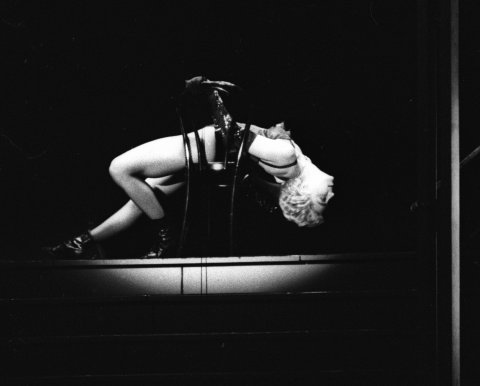
But parenting is full of anxieties, a world of dicks notwithstanding. I mean, I am worried about that, but also about BPA, drunken drivers, the potential toxicity of sunscreen, the well-documented dangers of not wearing sunscreen, the sorry state of public schools, the insane cost of private schools, the waiting list for soccer camp, the potential for traumatic brain injury from playing soccer, the self-esteem issues supposedly engendered by not playing organized sports, the cost of college, the cost of organic produce, not to mention terrorists, hippies, feral cats, libertarians, the French.
This is only a partial list, you understand.
There is a lie that every parent tells himself: my kid won't be like that. My daughter won't be swooning over some deadbeat, pregnant by 18, divorced by 25, bitter by 30. I have it all planned for her: she will follow me to Dartmouth, where she will date infrequently, then Yale Medical School, where she will meet the man who will become her husband. His specialty will be cardiovascular surgery. He will be Jewish, but not too Jewish, like his in-laws, and his knowledge of wine pairings will be superb. They will live in Westchester County, and they will watch their consumption of carbohydrates, and their children will attend schools that are both academically excellent and racially integrated. If they listen to "Papa Don't Preach," they will listen to it from the safe remove of a good life insulated from both material and existential concerns.
My daughter is now four. At a recent parent teacher conference at her absurdly expensive preschool, her teachers were not especially happy with her behavior. Nothing major, but significant enough to rattle both me and my wife. You never fully know your child, because you never fully know anyone but yourself. And so parenting becomes an exercise in radical trust, in letting go the person you least want to let go of. I know there will come a time when I have to give my children the car keys. I will hate to do it, but they will present me with their permits, and I will relent, as we all must. There will be other times, too, when I will not comply, and they will do whatever it is they stubbornly intend to do: a summer in Borneo, an internship on a marijuana-growing collective in Eastern Washington State, a major in dance studies. Safety is an illusion. So is certainty. So is the Ivy League.
"What I need right now is some good advice," Madonna sings.
I've got nothing for you, kid.
Until I started researching this article, I did not know Danny Aiello made a response music video to "Papa Don't Preach." As a matter of fact, I did not know Danny Aiello sang, or that he burned with such urgency on the Madonna/abortion/parenting question that he felt he needed to add to the discourse his own voice, such as it is. Imagine the worst of easy listening, combined with the worst of Eighties synth pop, and you have a pretty good idea of what Aiello was up to. "Papa wants the best for you," goes the song, "he wants to be proud of the things you do." That's a tough bargain, I fear, pegging your pride to a child's unruly independence. They are bound to disappoint, to confound, to root for the Yankees when you have Mets platelets in your blood. Madonna's song is weirdly hopeful, while Aiello's is disconcerting in its hopelessness.
The most affecting moment of the "Papa Don't Preach" video is the very last, right after Madonna's character has told Aiello's that she will not have an abortion, though of course it would be much easier for both of them if she did. They retreat to their separate corners in the house, but then return to each other and, finally, embrace, the way people tend to after an argument has burned through. In a medium predicated on loud, sexual imagery, this is a moment of earnest affection, the scene entirely irony-free.
Aiello embraces his daughter without any apparent exchange of words. Loving your children is easy enough. Trusting them is much harder.



